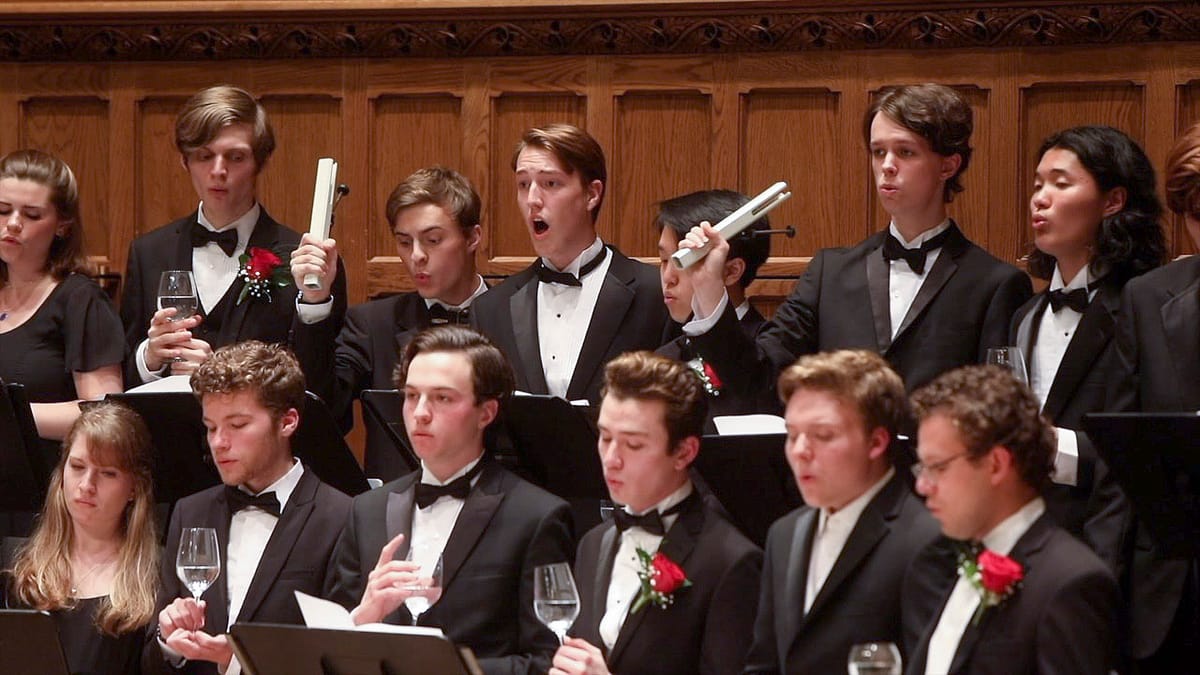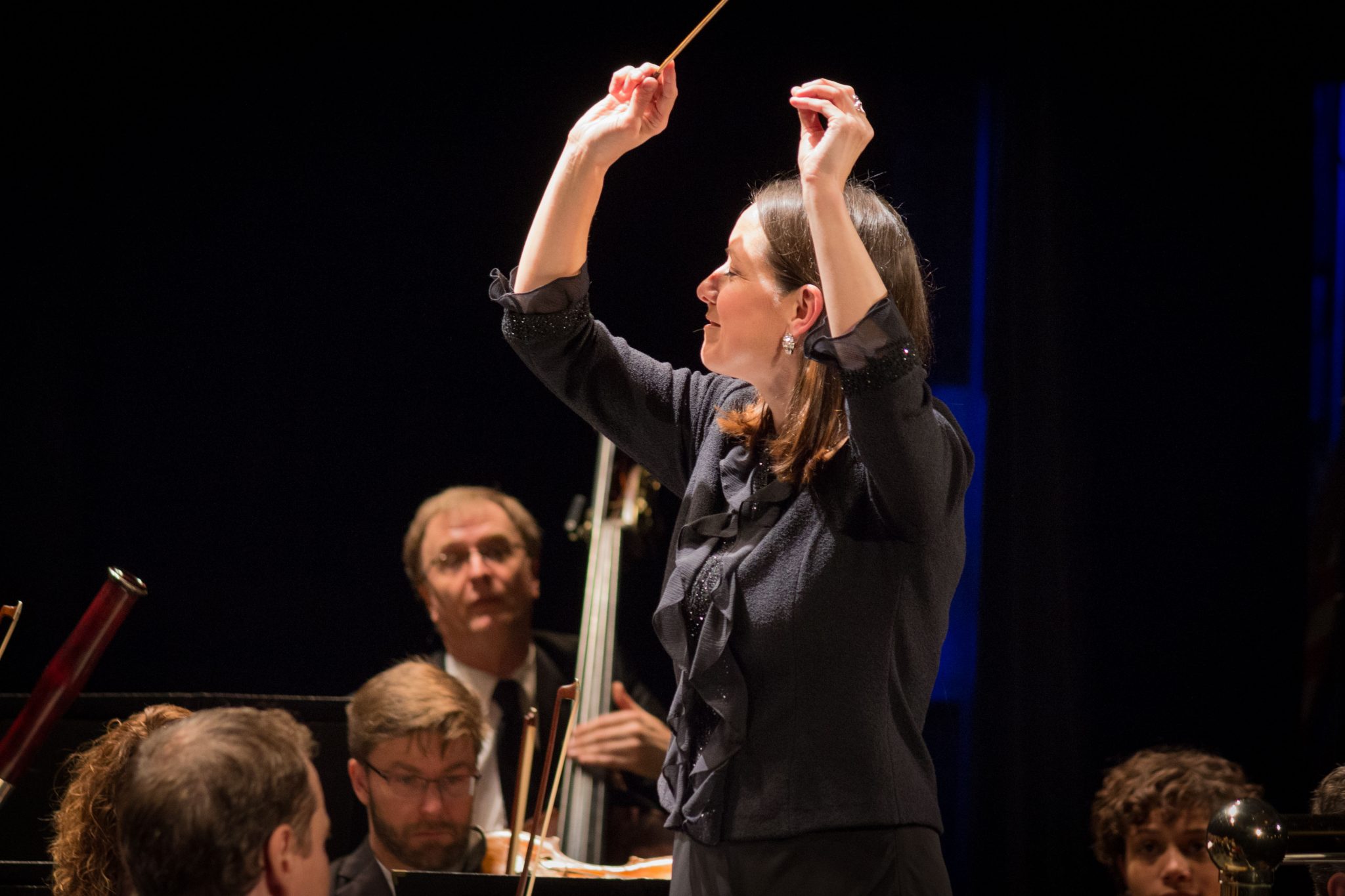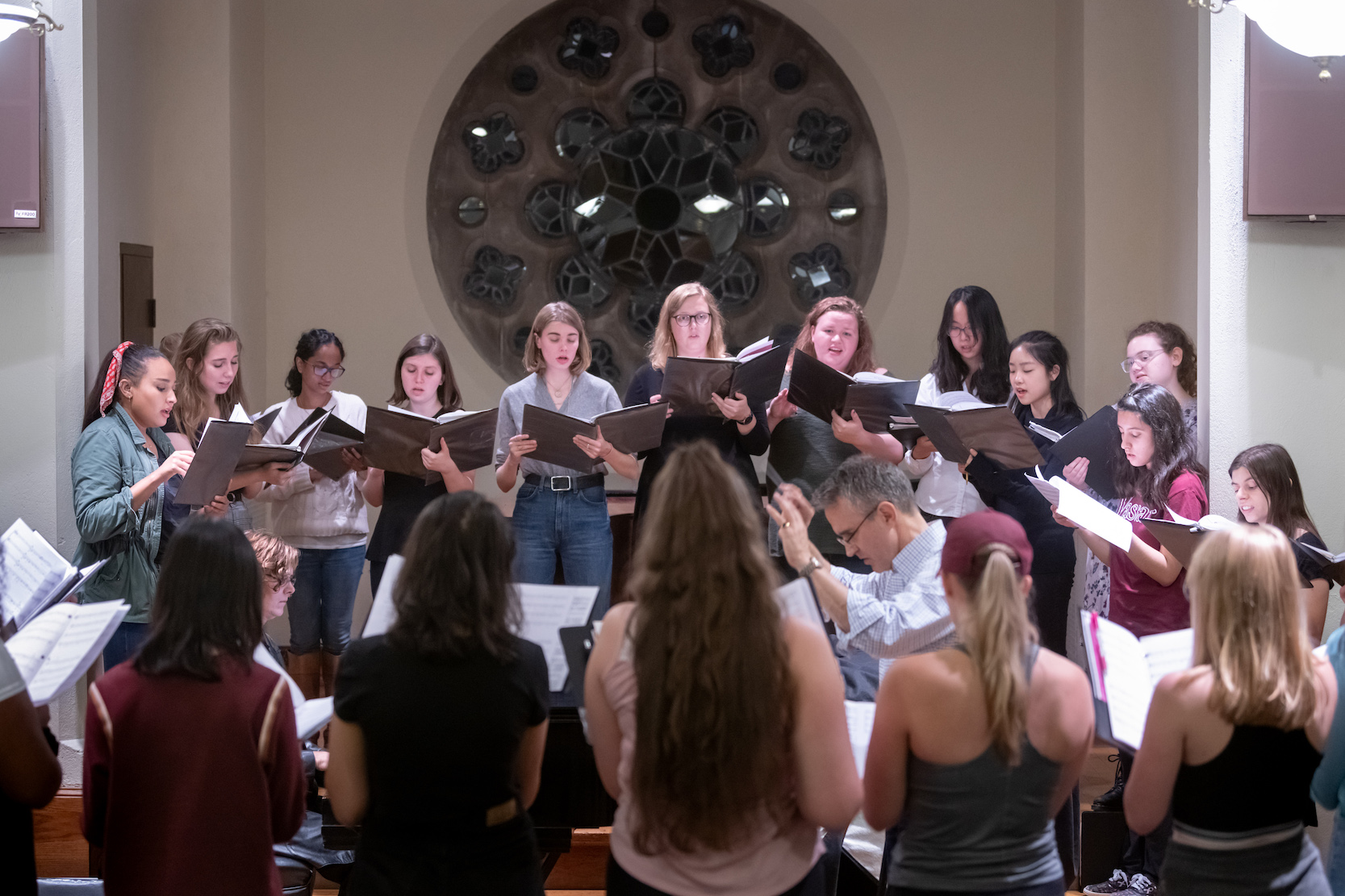In Conversation with the Vassar Choir Directors

Editor’s note: The Vassar College Choirs Tour to India has been cancelled. This interview has been updated in accordance with this development.
Founded in 1861, the Vassar College has been ranked amongst the top liberal arts colleges in the USA. Dr Christine Howlett and Dr Drew Minter are shaping the next generation of musicians at Vassar. In an email interview, they give us some insights into their ensembles and some very important advice for young singers.
Serenade Team: What is your history of singing and how did it lead you towards a path in teaching and conducting?
Christine Howlett: I started violin at a young age and studied it until I went to college. I was told by my parents that I was always singing around the house. When I attended an arts high school (ages 15-19), I was encouraged to sing in the choir and take voice lessons, and that’s where my love of singing truly blossomed. I went to the University of Toronto for a Bachelor’s Degree in Classical Voice Performance, and then went to Indiana University and earned a Master’s Degree in Early Music Voice Performance. (This degree focuses on music from the Medieval period to Baroque and early Classical periods.)

It was while I was doing my Master’s that I took a conducting class – a bit on a whim – because it sounded really interesting. I discovered during that class that I really wanted to pursue it more, so I took more courses and eventually auditioned for the Master’s program in Conducting, which I was admitted to. However, I convinced my advisors to let me fast-track to the Doctoral degree. (As a Canadian, I had limited funding while in the United States, so I had to be smart about how to complete the degree.) I am immensely grateful to my advisors for supporting me in my conducting degree. It is relatively unusual to go from two university degrees in voice to conducting, but it was the right fit for me.
Drew Minter: I began my singing career as a boy soprano at the age of 9 singing at the Washington National Cathedral in Washington DC. I entered the boys school, which was the original choir school (on the same model as the English cathedral schools). We sang rehearsals and services at the cathedral six days per week. Unless we had special performances I was only home on Saturdays for my entire childhood up until my voice changed at the age of 15. At that point I began singing countertenor, and that led me to study music in Vienna (Austria) and eventually to a 40 year long career singing countertenor in opera and oratorio (and chamber music, of course).
Here’s a typical video of my work in opera from the early part of my career (I was a specialist in the music of Handel):
But singing in small early music choirs was one of my very favourite things, and I made time for it for many years amidst the opera and solo work I was doing. I sang for many years with Pomerium, which in America is the equivalent of the Tallis Scholars or Stile Antico (the two English choirs that most resemble Pomerium) – a chamber music choir specializing in the great Continental polyphony of the renaissance period.
I had grown up singing in the best boy choirs in America (after the National Cathedral, I became an alto for four years at St. Thomas Fifth Avenue in New York), and then in a number of excellent vocal chamber ensembles. This led them to offer me the directorship at Vassar of the Chamber Singers. I had already taught for three years just teaching voice at the College, so directing the Chamber Singers was added on to what I was already teaching there.
ST: How do you go about auditioning singers for your ensembles?
CH: At Vassar, our auditions are fairly relaxed. Drew and I do these together. Normally, we ask the students to sing a song with or without accompaniment, and we vocalize the students – very much like a voice lesson. That’s usually my favourite part because we often find out something about the student’s range or vocal abilities that even the student wasn’t aware of! As we are making decisions, we look for students who will be successful in our groups – good pitch and rhythm, a nice voice, and most importantly, an eagerness to sing in a group! We also check their sight-singing, but recently, we simply have an honest conversation about how the student learns music. (These days, everyone learns a bit differently.) The Vassar College Choir (SATB) and Women’s Chorus (SSAA) are open to all students with an audition.

DM: To be in my choir, the Chamber Singers, you must first be a member of one of the two larger choirs. So the students must first of all want the experience of more choral singing. For many students just being in one of the larger choirs is enough. Since the chamber singers does more music and more advanced music by and large, and we only have two rehearsals per week instead of three (as the larger choirs do), the student singers have to have a higher skill level. After that, I put together the students that I think will make a good blend and be able to handle the challenge of more responsibility in a small ensemble.
ST: What are some of the challenges faced by choirs today?
CH: I am always seeking ways to strengthen the groups we have in terms of participation. Singing is something that these students can continue doing into their adult lives. Besides the utter enjoyment of singing, it’s a wonderful way to be a part of a group, make friends, and also simply have an artistic outlet. Very few of our students will continue on as professional musicians, but we strive to give them an opportunity to do music at the highest level so this can be a part of their lives forever.
DM: I think the biggest challenge is time. People are so busy. And it takes time for music to be learned and to be experienced. You cannot learn how to sing a piece just by listening to it on YouTube or Spotify. You actually have to physically sing the piece, sing it with others, and have the deep somatic experience of inCORPorating all of it, of feeling where all of it is located in your body, not just in your mind.
ST: What advice do you have for young singers out there?
CH: My advice for avocational singers is to get involved in singing in a group as soon as they can! If singing brings them joy, find a choir or small ensemble to sing in. Voice lessons are always an added bonus because it can help you enjoy singing as a soloist and as an ensemble singer. However, if it’s not possible to take lessons, singing in a choir can be the next best thing since you will learn a great deal from your conductor. The more vocal skills you have, the more enjoyable singing will become. For students interested in singing professionally, my advice is still to find a choir to sing in but then get voice lessons right away. (I also encourage these students to take an instrument such as piano. Especially for a student who is coming to voice later in life, having an instrument is pretty much essential, and will help their musicianship immensely.)
DM: Work with a teacher you trust. There are plenty of opportunities out there. So if you don’t like the situation or the teacher, switch to a different one. Nobody is for everyone. Some of learning music is grunt work and you have be willing to do all of that basic work. It is a craft and has to be learned as a craft, and learned well. But once you have enough of the tools in your toolbox, the release of making art and making music that is art, is an incomparable release for the soul.





